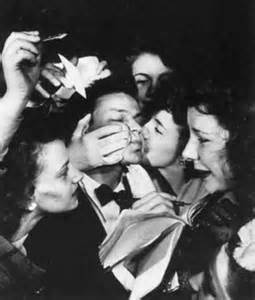|
home | what's new | other sites | contact | about |
||
|
Word Gems exploring self-realization, sacred personhood, and full humanity
The Great Psychologists Speak: Ferenczi perceived that hypnotism
return to the main-page article on "Satan"
the compulsive neurosis, the need to merge with power figures Sándor Ferenczi, a Hungarian psychoanalyst and colleague of Freud, in 1909 wonderfully explained the underpinnings of hypnosis. He "pointed out how important it was for the hypnotist to be an imposing person, of high social rank, with a self-confident manner. When he gave his commands the patient would sometimes go under as if struck by coup de foudre ["stroke of lightning"]. There was nothing to do but obey, as by his imposing, authoritarian figure the hypnotist took the place of the parents... The explanation of the ease of hypnosis, said Ferenczi, is that, 'In our innermost soul we are still [spiritually unconscious] children, and we remain so throughout life.'"
Hypnotists do not hypnotize - no external force can accomplish this; rather, the hypnotist convinces people to hypnotize themselves via the secret compulsion to merge with power-figures. "By discovering a universal predisposition at the heart of man, Freudian psychology itself gained the key to a universal underlying historical psychology. As not everyone undergoes formal hypnosis, most people can hide and disguise their inner urge to merge themselves with power-figures. But the predisposition to hypnosis is the same one that gives rise to transference, and no one is immune to that... It is not visible on the surface: adults walk around looking quite independent; they play the role of parent themselves and seem quite grown up - and so they are... But, says Ferenczi, although [childhood feelings of awe of parents disappear] 'the need to be subject to someone remains; only, the part of the father is transferred to teachers, superiors, impressive personalities; the submissive loyalty to rulers that is so widespread is also a transference of this sort.'"
why people squawk like chickens
Satan and hypnotism For someone who "believes" in Satan, there is no rational discussion. Fears will not allow this; one senses, in the opposing interlocutor, an investment of one's entire life force. To abandon one's concept of Satan would be to lose the "Joker is wild" assigned meaning, and such deficit would quickly become the collapse of an entire world-view. Those burdened by this mind-set readily give one the impression that the "believer" is suffering under a form of hypnosis. He or she might be somewhat level-headed in other aspects of life, but touch on this hot button, and a new person emerges. Much is at stake for the "believer." Freud stated, concerning the psychologically-weak person, even to look in that person's eye, straight on, can cause a kind of "paralysis" - a virtual hypnotic effect, as one swoons under the subliminal memory of the powerful parent! There is plenty of "swooning," of "paralysis," on the part of those who imagine Satan to be threatening their lives.
The needy "child within" would do anything to get back to the "oceanic feeling" once delivered. This is why people will agree, with themselves, to squawk like chickens. Dr. Becker quotes another researcher, Fenichel: "People have a 'longing to be hypnotized' precisely because they want to get back to the magical protection, the participation in omnipotence, the 'oceanic feeling' that they enjoyed when they were loved and protected by their parents." These last phrases, so poetically vital, stir us deeply, as we imagine, and remember, at one time or another, even brief glimpses of primordial love in our lives. Part of us would dearly like to get back to that "oceanic feeling" of total immersion in parental protection. Just now I recall the 1930s movie "Lost Horizon" about Shangri-La. Robert Conway battled all obstacles to get back to the girl he loved in that mountain hideaway. We all want that feeling of "oceanic" immersion in love. But there is an honest and a dishonest way of going about it - the "short cut" to love, by definition, must be classified as "evil."
Creating an illusionary, strawman hate-object, a mythical Satan, the struggle against which one might temporarily feel "more alive," is self-defeating, creates inner darkness with its fear-based machinations, and merely delays the time of one's arrival in the real Shangri-La -- we would call it Summerland.
|
||
|
|


